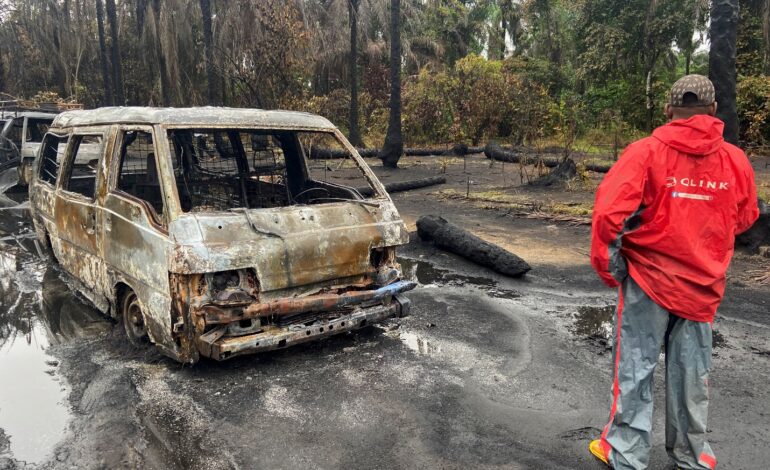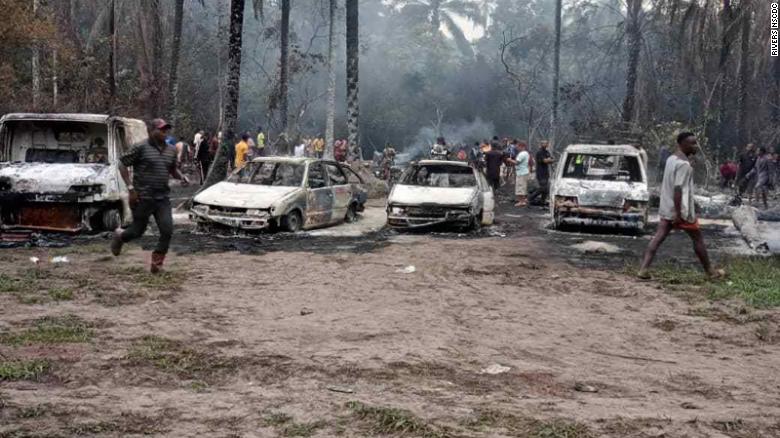
Ekeomah Atuonwu
On Sunday, charred bodies were found scattered among burnt palms, cars, and vans following a weekend explosion at an illegal oil refining depot on the border of Nigeria’s Rivers and Imo states that killed more than 100 people.
The ground was blackened by oil and soot and still emitting smoke in some places despite overnight rain, with flip flops, bags, and clothing belonging to those who died.
On Sunday, the Nigerian Red Cross Society was on the scene to assess the blast, which destroyed a section of the Abaezi forest, which straddles the border of Imo state’s Ohaji-Egbema Local Government Area and Rivers state.

Nigerian President Muhammadu Buhari said in a statement that he would step up the crackdown on illegal refineries following what he called a “catastrophe” and “national disaster.”
Unemployment and poverty in Nigeria’s oil-producing Niger Delta have made illegal refining appealing, but with often fatal consequences. Crude oil is extracted from a network of pipelines owned by major oil companies and refined in improvised tanks.
The process has resulted in fatalities and polluted a region already plagued by oil spills in farmland, creeks, and lagoons.
According to the Youths and Environmental Advocacy Centre, several vehicles were burned while waiting in line to buy illegal fuel.
According to government officials, Nigeria, Africa’s largest oil producer and exporter, loses an average of 200,000 barrels of oil per day, or more than 10% of production, due to illegal pipeline tapping or vandalism.
As a result, oil companies have been forced to declare force on oil and gas exports on a regular basis.




